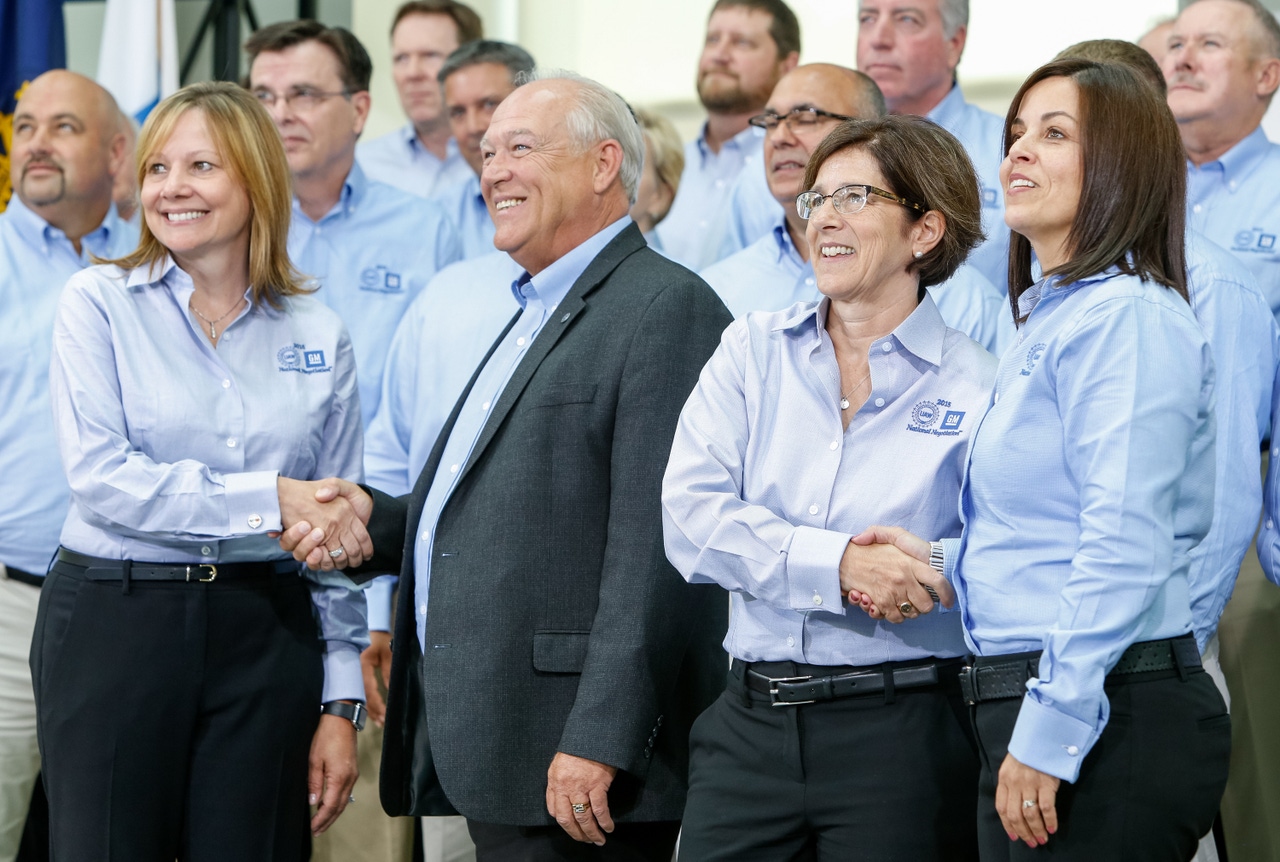UAW-GM Talks Unfold Amid Hefty Profits, Strike ThreatUAW-GM Talks Unfold Amid Hefty Profits, Strike Threat
The talks play out under starkly different circumstances than previous bargaining sessions because for the first time in more than a decade GM boasts a strong balance sheet, record profitability and a competitive product portfolio.

DETROIT – UAW President Dennis Williams and General Motors CEO Mary Barra kick off negotiations on a new 4-year labor contract with a traditional handshake and while they refrain from commenting on specific bargaining issues, the leaders say they want an agreement that leads to a stronger GM and avoids a work stoppage.
“A successful GM is good for our shareholders, but it’s also good for our employees,” Barra tells WardsAuto at the UAW-GM Center for Human Resources here. “As we continue to have good cars, trucks and crossovers, continue to improve on productivity, on safety (and) implementing technology, that provides security and opportunities for growth.
“Make no mistake,” she adds, “as a company we want to drive growth, profitable growth, and we will continue to do that.”
This summer’s negotiations, which got under way weeks ago, play out under starkly different circumstances than previous bargaining sessions because for the first time in more than a decade GM boasts a strong balance sheet, record profitability and a competitive product portfolio.
The UAW hopes to take advantage of that by narrowing the pay gap between entry-level earners and traditional employees making nearly $10 an hour more. GM’s strength in the U.S. and China also gives the UAW’s 50,000 GM workers an argument to continue the rich benefits they have enjoyed for years and reason to add production to the automaker’s assembly plants in the U.S. rather than Mexico.
But perhaps the biggest difference in this year’s talks is the UAW’s renewed ability to strike GM if negotiations break down. The union gave up its single greatest bargaining chip as a clause in the 2009 government-backed bailout of the automaker.
UAW rank-and-file tell WardsAuto local leaders have instructed them to prepare to walk off the job if talks hit a snag. GM has not seen a prolonged strike at its facilities since 1997. The union briefly struck GM in 2007 before nailing down a new contract.
Williams acknowledges the UAW will bargain from a stronger position as a result, but he says a strike would reflect a failure on the part of the bargaining teams.
“It’s one of the worst things that you could do,” he says, adding “I’m not afraid of confrontation but I don’t want one and our members don’t want one.”
Williams expects an agreement without a work stoppage, citing the experience of each side’s negotiating teams, and he says the groundwork for a successful bargaining session was laid earlier in one-on-one meetings between him, Barra and their top lieutenants.
“We’ve got a good bargaining team and I hold us to a pretty high standard for our members and I would be very disappointed if (a strike) would have to occur,” he says.
Addressing Ford’s decision last week to move production of the Ford Focus and C-Max small cars from its Wayne, MI, assembly plant to Mexico, Williams hints it will be a hot topic when talks between those two sides open July 23.
“I’ll save my comments for Ford, when we open up with Ford,” he says.
GM also builds small cars in the U.S., which can be tricky because margins on those products are typically thinner than on bigger cars and trucks so labor costs cut more deeply into per-unit profitability.
Barra expects to continue building the Chevrolet Sonic and Buick Verano at the automaker’s Orion Twp., MI, assembly plant.
“We have no plans to change that,” she says.
Contract talks between the UAW and GM date back to 1937, and the 2011 pact expires at midnight Sept. 14. In addition to the national contract, local agreements will be negotiated at 53 GM locations.
About the Author
You May Also Like

